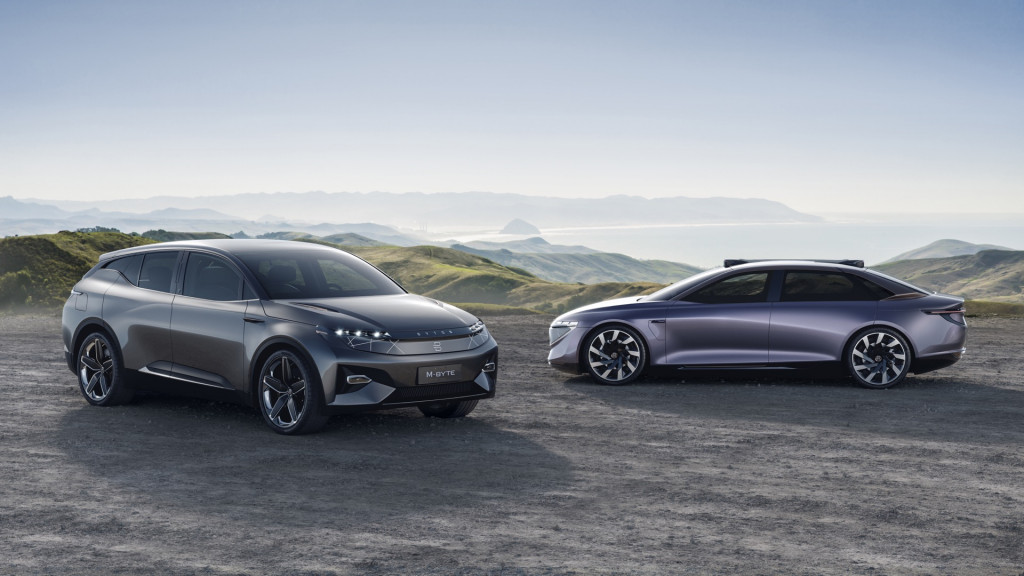One of the more promising EV startups to come out of China, Byton, has halted operations after failing to secure additional funding.
The decision was made by shareholders to facilitate a restructuring, a company spokeswoman told Nikkei on Monday.
Under the restructuring, only core employees will be retained. Non-core employees in China have been furloughed while their counterparts in the United States, where Byton has an R&D center, face layoffs. Non-core employees in Europe are working reduced hours.
Byton in April started pre-production of its first model, the M-Byte crossover SUV, and was on track to start deliveries in China later this year. However, the economic slowdown and resulting tighter lending conditions caused by the ongoing Covid-19 coronavirus pandemic is taking its toll on many firms.

Byton M-Byte and K-Byte
Byton was founded in 2016 by a pair of former BMW execs and managed to raise more than $1.2 billion from leading firms in China including Tencent Holdings, Foxconn Technology and established automaker FAW Group. However, it lost its co-founder and original CEO Carsten Breitfeld in 2019.
Breitfeld, who now heads Faraday Future, a Chinese-backed, U.S.-based EV startup that's also on hiatus due to cash troubles, said he left Byton because of the increased influence of the Chinese government following the investment made by FAW Group, a state-owned enterprise.
At the reveal of the M-Byte concept at the 2018 Consumer Electronics Show, Byton said the small SUV would come with a $45,000 base price. The company also hinted that year at a second model by unveiling a concept for a sedan called the K-Byte.
Even if Byton gets its M-Byte into showrooms in China, the company will be up against strong headwinds. In addition to the economic slowdown, the Chinese government has cut back on subsidies for EVs at a time when competition is growing from the likes of Tesla, Nio, Xpeng and WM Motor.
